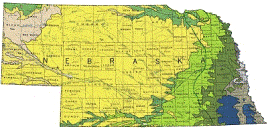United States Geological Survey

United States Geological Survey: Staff Publications
Document Type
Article
Date of this Version
2014
Citation
Published in Social-Ecological Resilience and Law, ed. Ahjond S. Garmestani and Craig R. Allen (New York: Columbia University Press, 2014). pp.235-264.
Abstract
Climate change, when combined with more conventional stress from human exploitation, calls into question the capacity of both existing ecological communities and resource management institutions to experience disturbances while substantially retaining their same functions and identities (Zellmer and Gunderson 2009; Ruhl 2011). In other words, the physical and biological effects of climate change raise fundamental challenges to the resilience of natural ecosystems (Gunderson and Holling 2002). Perhaps more importantly, the projected scope of ecological shifts from global climate change-and uncertainty about such changes-significantly stresses the capacity of legal institutions to manage ecosystem change (Camacho 2009). Existing governmental institutions lack the adaptive capacity to manage such substantial changes to ecological and legal systems. In particular, regulators and managers lack information about ecological effects and alternative management strategies for managing the effects of climate change (Karkkainen 2008; Camacho 2009), as well as the institutional infrastructure for obtaining such information (Peters 2008).
Included in
Earth Sciences Commons, Environmental Indicators and Impact Assessment Commons, Sustainability Commons


Comments
This article/chapter is a U.S. government work and is not subject to copyright in the United States.